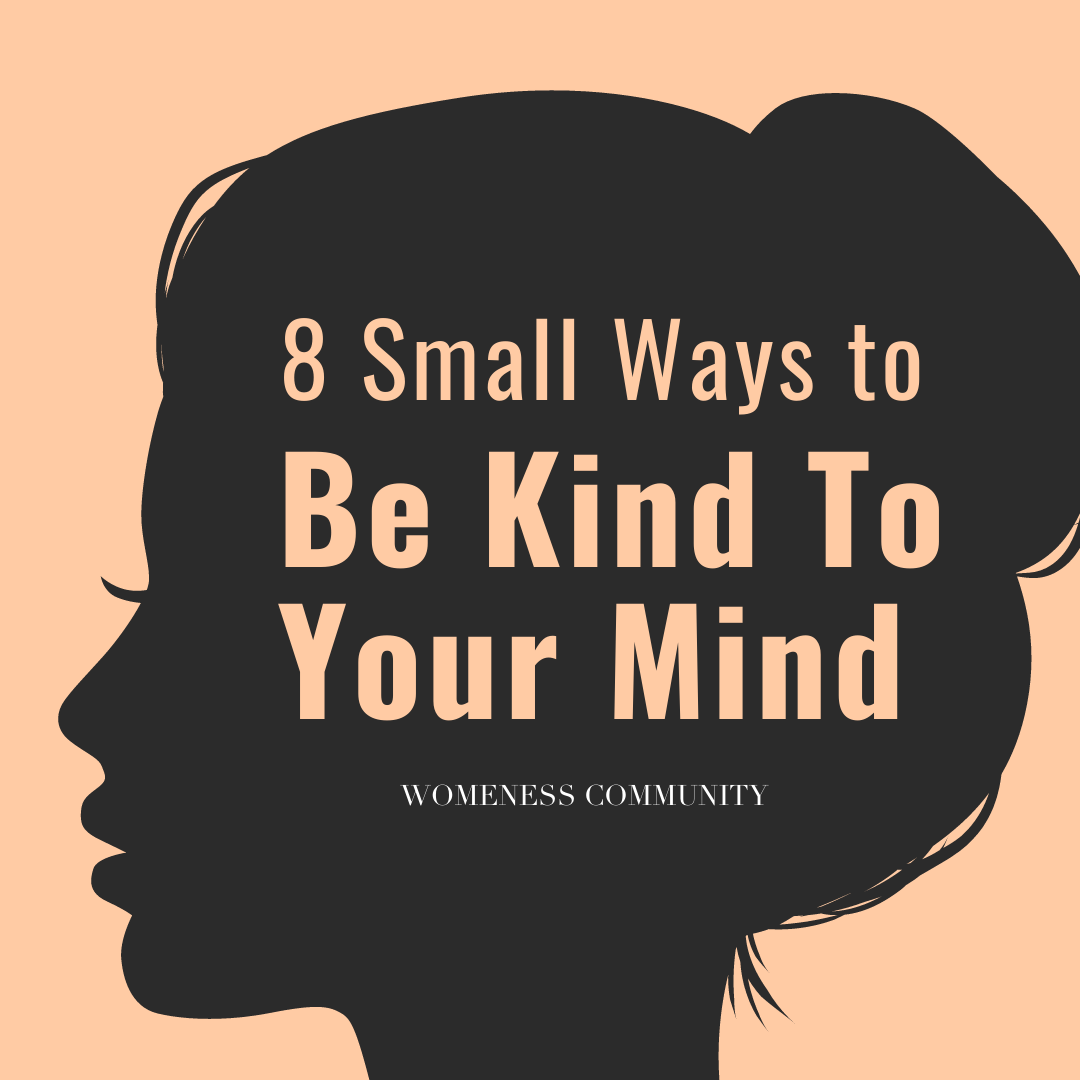May is Mental Health Awareness month, and with everything going on in the world right now, it’s more important than ever to understand how you can take care of your mental health.
Just like taking care of our physical health, we can take care of our mental health through daily practices and routines. Today we are sharing 8 small ways to be kind to your mind that you can incorporate into your lifestyle.
-
Take a break
Our regular lifestyles often consist of mentally taxing activities like back-to-back meetings, multi-tasking with work or home tasks, keeping mental to-do lists of things that need to get done, and deciding what to make for dinner. That’s a lot to ask our minds to do every single day!
One important way to look after your mental health is making sure you’re giving yourself the time and space to decompress. Maybe this looks like taking a 15 minute break during a busy work day and walking outside to get sunshine and fresh air. Or if you’re feeling overwhelmed or burnt out in your day-to-day activities, taking a break might mean scheduling some PTO and getting out of town, or just staying home and taking care of yourself and your home. Whatever this looks like for you, remember that taking breaks is not a luxury – it’s a mental-health necessity!
-
Go screen-free before bed
Sleep is an important factor in taking care of your mental health, and science has shown that the bluelight from screens can impact the quality of your sleep. Looking at screens can also keep your brain wired and stimulated, which is the last thing you want right before trying to going to sleep.
We know this is tough, and we’re with you! The key is to think of something you can incorporate into your night-time routine that doesn’t involve screens and allows you to start winding down your brain. Maybe it’s reading a book, journaling, taking a bath or shower, doing some light yoga or stretching, or just snuggling with a partner or pet. Try to shoot for going screen-free around an hour (or two, if you can swing it!) before your bedtime.
-
Meditate
Meditation is an amazing tool for caring for your mental health. It can improve your focus and concentration, improve self awareness and self esteem, ease stress and anxiety, and manage negative emotions. Don’t let any stigmas about what meditation “should” look like stop you from reaping the benefits. Using a meditation app can be a great way to get started, or even just closing your eyes and focusing inward for five minutes.
-
Limit refined sugar
Overconsumption of sugar can trigger imbalances in certain brain chemicals, which could potentially exacerbate symptoms of depression or other mental health conditions. Be kind to your mind and body by limiting the amount of refined sugar in your diet and focusing on eating whole foods.
-
Sleep
Sleep is critical in the way we feel both mentally and physically. Ensure your mind is getting the mental “recharge” time it needs each night by prioritizing your sleep. Finding ways to wind down before bed without screens like mentioned above can help improve the quality of your sleep, and make sure your mind is functioining at its best the next day.
-
Talk to someone
Having someone to confide in about your feelings and things you’re going through is such an important component of taking care of our mental health. Connecting with others can help us navigate through difficult situations and know we are supported and not alone in whatever we’re going through. Fostering friendships with individuals you can trust, joining a community or support group, or connecting with a mental health professional are all great ways to make sure you are supporting your mental health.
-
Journal
Journaling is a great tool for mental health because it can help you process emotions and find clarity. When it comes to journaling, remember to have no expectations of what it “should” look like. It’s a tool for you that nobody else needs to see. Keep it simple and start with just a couple of minutes per day. We love the method of doing a “brain dump” into your journal and just getting out everything that’s swirling around in your head so you can process it. Another great journaling tip is to use prompts, which can make it less daunting to get started. Be sure to sign up for our newsletter to get new journal prompts regularly!
-
Move your body
It’s no secret that movement not only benefits your physical health, but your mental health as well. Regular aerobic exercise can make your body’s “fight or flight” system less reactive, which can help decrease anxiety. Aerobic exercise, resistance training, flexibility movements, and meditative movements have also been shown to decrease depressive symptoms. Studies show that even moving your body for just 15 minutes a day can have significant impacts on your mental health. If regular movement isn’t a part of your routine yet, try incorporating a walk or some gentle yoga every day. Our team also loves taking your movement outside to get the added benefit of sunshine and fresh air. Join us for our monthly Womeness in the Wilderness meet ups where we do a hike, yoga, or other outdoor adventure and move our bodies together!
Bonus tip: Start with just one thing
Trying to incorporate a bunch of new habits into your already jam-packed routine can do more harm than good if you try to do it all at once (talk about stressful!). Caring for your mental health is a lifelong practice, so avoid overwhelm by picking just one of these tips to start incorporating in your lifestyle. See if you can “stack” the new habit with something in your current routine to reduce the mental load it takes to incorporate it – for example, if you want to focus on journaling, you could pair that new habit with something you already do on autopilot every morning, like brewing a cup of coffee.
Which small way to be kind to your mind will you focus on? Share with us in the comments!




